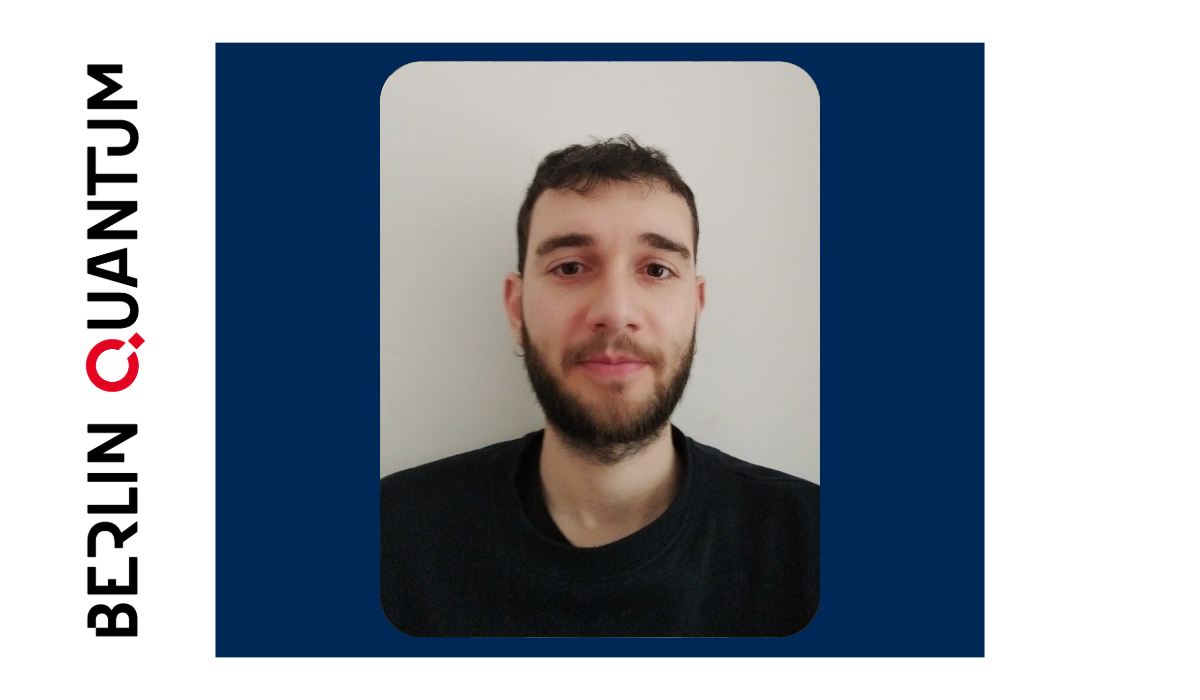What inspired you to pursue a career in quantum physics?
My main drive was a deep curiosity and urge to understand the fundamental laws that govern our reality. I was especially fascinated by the strange and counterintuitive behavior of quantum systems, which challenge our common-sense notions of how nature works.
Why did you choose to conduct your research in Berlin?
Berlin offers a vibrant and collaborative research environment with a strong focus on quantum sciences. The city’s interdisciplinary networks and international atmosphere make it an ideal place to pursue research in quantum physics.
What advantages does Berlin offer for quantum physics research compared to other cities or countries?
Berlin offers a unique combination of strong academic institutions, a growing network of quantum technologies, and excellent funding opportunities. The above, combined with the city’s collaborative atmosphere, creates a dynamic environment for quantum sciences that is hard to find in other cities.
Can you tell us about a current project or experiment you are working on?
I am working on methods of quantum reservoir engineering for robust state preparation of many-body states that can be harnessed for practical tasks in quantum computing, communication, or sensing. In particular, I investigate efficient methods of cooling many-body systems down to their ground states by coupling them to auxiliary qubits that are frequently reset down to their ground states. In contrast to most of the existing cooling protocols that rely on knowledge of the spectrum of the many-body Hamiltonians, the proposed protocol relies on stochastic choices of the auxiliary qubits' energies at each reset, rendering its applicability feasible for completely system-agnostic Hamiltonians.
How do BERLIN QUANTUM and the Berlin research landscape support your work, and which resources are particularly helpful?
BERLIN QUANTUM and the broader Berlin research landscape provide excellent networking opportunities and a strong collaborative environment. Resources like the dedicated funding programs, interdisciplinary workshops, and connections to industry are particularly valuable for advancing my research.
What role does collaboration with other scientists and institutions in Berlin play in your research?
Collaboration with other scientists and institutions in Berlin is essential to my research, as it allows for the exchange of ideas, exposure to different perspectives, and the opportunity to work on innovative projects. This collaborative environment accelerates progress and enriches my work.
How does living in Berlin influence your personal and professional development?
Living in Berlin offers a unique blend of cultural diversity and professional opportunities that enhance both my personal and professional growth. Berlin's dynamic academic community, coupled with its lively social scene, creates an environment that encourages creativity and new ideas.
In your opinion, what are the most exciting developments or trends in quantum physics that we can expect in the coming years?
In the coming years, I believe we will see significant advancements in quantum computing, particularly in the development of error correction techniques and the scaling of quantum processors. It is also very likely that the growing field of quantum communication and cryptography will lead to breakthroughs in secure information transfer.
What advice would you give to young scientists who aspire to a career in quantum physics and might consider coming to Berlin?
My advice would be to take full advantage of the collaborative environment that Berlin offers. Connect with researchers from different fields, as these relationships can lead to new ideas and opportunities. Berlin is a city that encourages innovation, so make the most of its strong academic networks and active research community.
More information.

